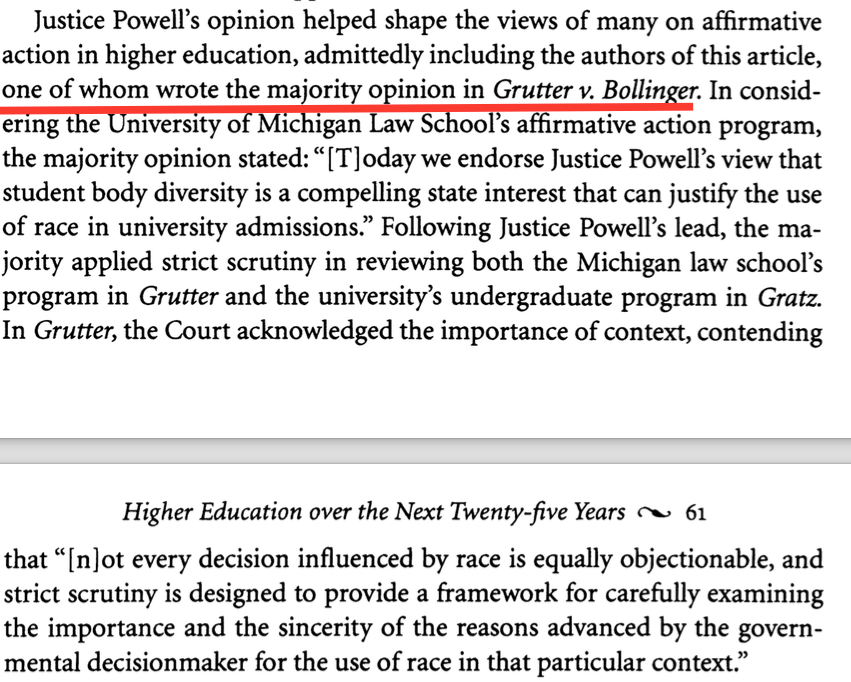I thought April Fool’s Day came early to the Legal Theory Blog when I saw an article authored by Justice O’Connor titled “Affirmative Action in Higher Education Over the Next Twenty-Five Years: A Need for Study and Action.” It is a book chapter, co-authored with Stewart J. Schwab (Cornell) that was originally published in 2010, in a book titled The Next Twenty-five Years: Affirmative Action in Higher Education in the United States and South Africa. It was only posted to SSRN on 12/20/15 for reasons that are unclear.
Here is how the authors describe the majority opinion in Grutter:

The article keeps speaking of “the Court” when it is clearly O’Connor who singularly determined the outcome of the case. (See also her concurring opinion in Lawrence v. Texas insisting that same-sex marriage is not compelled by the Constitution). The authors also dismiss the relevance of the famous, but meaningless “25 year” clock, which apparently inspired the title of the volume.
We expect that 25 years from now, the use of racial preferences will no longer be necessary to further the interest approved today.
The authors write that “the 25-year expectation is, of course, far from binding on any justices who may be responsible for entertaining a challenge to an affirmative action program in 2028. Those justices will be charged–as Lewis Powell was in Bakke in 1978, and as the Court was in Grutter in 2003–with applying abstract constitutional principles to concrete educational endeavors.”
During oral arguments in Fisher I, Justice Breyer noted that we are nine years into the 25-year clock.
JUSTICE BREYER: If you are going to the merits, I want to know whether you want us to — or are asking us to overrule Grutter. Grutter said it would be good law for at least 25 years, and I know that time flies, but I think only nine of those years have passed. And so, are you? And, if so, why overrule a case into which so much thought and effort went and so many people across the country have depended on?
Scalia also asked about the clcok:
JUSTICE SCALIA: But that holds for only - only another what, 16 years, right? Sixteen more years, and you’re going to call it all off.
MR. GARRE: Your Honor, we don’t read Grutter as establishing that kind of time clock. We are looking at this -
JUSTICE SCALIA: But you’re appealing to Grutter, and that’s what it said.
And in Fisher II, the Chief Justice used the same clock:
CHIEF JUSTICE ROBERTS: Well, you’re talking about the time Grutter said that we did not expect these sort of programs to be around in 25 years, and that was 12 years ago. Are are we going to hit the deadline? Is this going to be done on in your view in 12 years?
…
And so it was important in Grutter to say, look, this can’t go on forever, 25 years. And when do you think your program will be done?
Justice Scalia also got in on the fun:
JUSTICE SCALIA: Mr. Verrilli, do you you think all of this won’t be necessary in another 13 years
GENERAL VERRILLI: Well
JUSTICE SCALIA: where we stop disadvantaging some applicants because of their race.
GENERAL VERRILLI: What I think about that is that the the Court, I think, made a prediction in in Grutter that that would hopefully be the case.
“Hopefully.”